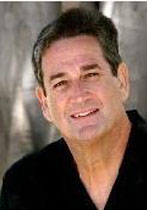By Rabbi Ben Kamin

ENCINITAS, California –When the news came recently from Memphis that Maxine Smith had died—just a few days after my own biological, if enigmatic mother had passed—I understood what the loss of maternal wisdom and joy really does to a son. This Mother’s Day is my bittersweet day of mourning for the woman who most endeared me with hope and with her example of courage, nobility, and the refusal to judge another human being.
Maxine Smith, classmate of Martin Luther King Jr. (she called him “the Nerd”), purveyor of great stories from the heyday of the US Civil Rights Movement, Tennessee freedom icon, a woman as downright funny as she was uncommonly brave—this woman allowed me to call her “My Momma Maxine.” Over the last several years, since I first interviewed her for one of my books, she quickly became my mentor, confidante, advocate, and counselor. In the category of the heart, she was my mother.
My grief for her today is drenched by the salty waters of our kindred spirits.
Whether I was launching a book in Memphis (at her beloved National Civil Rights Museum at the Lorraine Motel, where she was a founder and lifelong trustee) or just there to romp on Beale Street and listen to great music at the Stax Museum, I never, ever failed to spend time with Maxine at her rambling, tree-laden home on stately East Parkway. She loved vodka, gossip, shared anecdotes—and she loved me. Her son, the extraordinarily devoted “Smitty,” not only didn’t resent my relationship with his famous mom; he cheered for it.
In her mighty, more youthful days as the executive secretary of the Memphis NAACP, Maxine integrated the city’s schools, marched in protests against segregated public facilities, and was several times jailed. With her beloved late husband, Vasco, she stood up to the oligarchic Southern racism that officially branded Memphis with hate when MLK was shot dead at the Lorraine Motel on April 4, 1968.
Maxine was in the congregation, with her young son, the night before, April 3, when King delivered his hauntingly prophetic “I’ve Been to the Mountaintop” preachment. “He liked a good-sized crowd,” she told me, a twinkle in her eye, and a painful smile across her face.
Maxine Smith was well-acquainted with turbulence and violence affecting her and her friends. She and Vasco spearheaded an unprecedented voter registration campaign for black Memphians beginning in the late 1950s. In one extended effort, defying police hostility, the physical assaults of white supremacists, routine death threats, personal humiliations (in one instance, police detained her for hours in a men’s urinal), they raised the number of registered black voters from ten thousand to over fifty thousand.
Of such efforts, Maxine told me over and over again: “Oh, I didn’t do that much. Other people did it and I was just there.” When we would walk through her home and I took in her wall after wall of plaques, honors, and awards, she routinely dismissed all the notoriety, mentioning the names and sacrifices of others who brought about this change or that and saying, “I was lucky enough to be there, that’s all.”
Then we’d sit down, mix some more martinis, and she’d ask me about my children. It was always hard to leave Maxine when it was time to go. Today, it is very hard for me to let her go.
*
Rabbi Kamin is a freelance writer based in the San Diego suburb of Encinitas, California. He may be contacted via ben.kamin@sdjewishworld.com